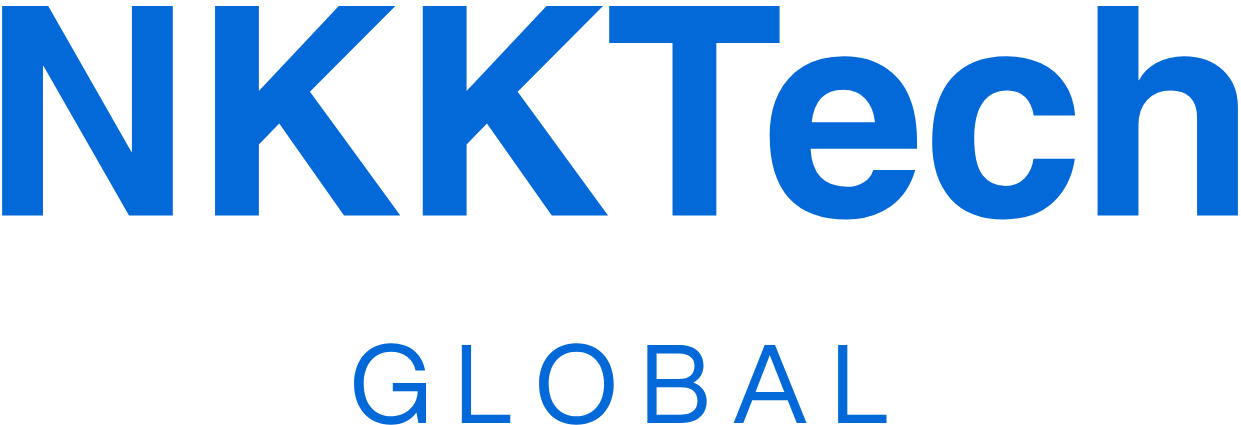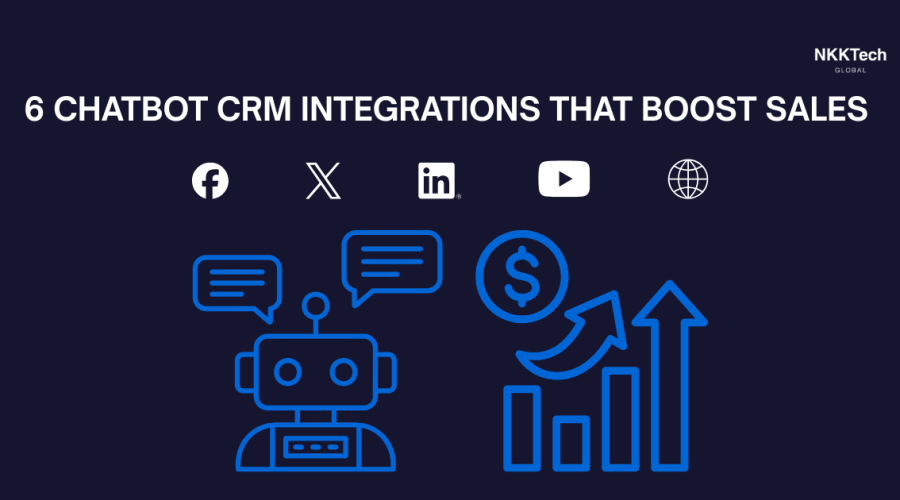Unlocking the Power of Software Development Outsourcing
In today’s rapidly accelerating digitized business landscape, developing innovative technological solutions is crucial for maintaining a competitive edge. However, not every enterprise possesses the internal resources to build and sustain a high-quality software development team. This is precisely where Software Development Outsourcing emerges as a smart and effective strategy. It not only helps organizations expedite their time-to-market but also significantly optimizes operational costs, opening doors to accessing highly specialized global talent pools.
Software Development Outsourcing provides a strategic pathway for businesses to focus on their core competencies while entrusting complex software development tasks to external experts. This solution is particularly suitable for startups aiming to quickly develop an MVP (Minimum Viable Product), large enterprises needing flexible IT team scaling, or organizations looking to experiment with new technologies without significant investment in infrastructure and hiring. By leveraging diverse outsourcing models, from project-based to dedicated teams, businesses can streamline workflows, ensure product quality, and achieve business objectives more rapidly.
Software Development Outsourcing offers a comprehensive approach to modern business challenges, enabling companies to enhance their agility and innovation. The ability to tap into a global pool of experts means that even niche technical requirements can be met without the burden of extensive internal recruitment. This strategic approach ensures that businesses remain competitive by continuously evolving their technological footprint while maintaining a lean and efficient operational structure. Moreover, outsourcing minimizes the risks associated with market fluctuations in labor costs and the fixed expenses of in-house personnel.
Table of Contents:
- What is Software Development Outsourcing?
- Key Benefits of Software Development Outsourcing
- Common Software Development Outsourcing Models
- How to Choose the Right Software Development Outsourcing Partner?
- Challenges and Solutions in Software Development Outsourcing
- The Future of Software Development Outsourcing
What is Software Development Outsourcing?
Software Development Outsourcing refers to the practice where a company contracts a third-party vendor, typically a specialized IT firm, to handle its software development tasks. This can encompass the entire software development lifecycle, from ideation and design to coding, testing, deployment, and ongoing maintenance and support. The primary goal of outsourcing is to leverage resources, expertise, and technologies that an in-house team might lack or that the company prefers not to invest in directly. Unlike hiring full-time employees, outsourcing offers greater flexibility in scaling development teams up or down according to project needs, while also reducing the administrative burden and recruitment costs.
Implementing Software Development Outsourcing significantly saves time and resources for businesses. Instead of going through lengthy recruitment processes to find specialized software engineers, companies can quickly access pre-trained and experienced expert teams. This dramatically reduces the time-to-market, a critical factor in today’s competitive business environment. This is especially vital for projects demanding high speed or deep expertise in emerging technologies like AI, blockchain, or cloud computing. Outsourcing partners often possess professional development processes, modern tools, and experience handling various project types, ensuring both quality and timely delivery. Furthermore, outsourcing helps mitigate risks associated with labor market fluctuations and fixed costs for internal staff.
In the context of globalization, offshore development has become an inevitable trend. Businesses from developed countries often seek partners in regions with more affordable labor costs but still high-quality output, such as Vietnam, India, or Eastern European countries. This not only helps reduce expenses but also fosters diverse perspectives and skill sets during the development process. Managing outsourced projects requires clear communication, effective collaboration tools, and a robust legal framework to ensure all commitments are met. A sustainable partnership with an outsourcing provider can yield long-term benefits, contributing to the overall success of the business. Understanding the nuances of Software Development Outsourcing is key to leveraging its full potential.
Key Benefits of Software Development Outsourcing
One of the most significant advantages of adopting a Software Development Outsourcing strategy is the ability to achieve substantial cost efficiency. Maintaining an in-house software development team can be incredibly expensive, involving salaries, benefits, office space costs, equipment, and training. When outsourcing, businesses only pay for the services they receive, often at a much more competitive rate, especially when working with partners in countries with lower labor costs. This frees up budget to invest in other core business areas, thereby enhancing overall financial performance. The reduction in operational overhead directly contributes to improved profitability and resource allocation.
Beyond cost savings, Software Development Outsourcing also helps to accelerate development of products and services. Professional outsourcing partners typically have large teams with specialized skills readily available, allowing them to kickstart projects immediately without the need for lengthy recruitment and training periods. This significantly shortens the time-to-market, which is crucial in a highly competitive business landscape. The flexibility to scale teams up or down is also a major advantage; when a project requires more personnel, the partner can quickly provide additional resources without impacting the client’s internal operations. This agility enables businesses to adapt quickly to market changes and customer demands, fostering a more responsive and dynamic development process.
Another undeniable benefit of Software Development Outsourcing is access to high-quality software and global expertise. Specialized outsourcing companies often focus on recruiting and training top talent in the technology sector. This means businesses can leverage in-depth knowledge of the latest technologies, best development practices, and experience handling complex projects that might not be available internally. Furthermore, collaborating with external experts can bring fresh perspectives and innovative ideas, contributing to the overall quality of the final product. To learn more about comprehensive IT solutions, you can explore our services at https://nkk.com.vn/dich-vu-it.
Common Software Development Outsourcing Models
When considering Software Development Outsourcing, choosing the right model is extremely important. There are three primary models commonly used: Nearshore, Offshore, and Onshore. Each model has its own advantages and disadvantages, suiting different project types and business objectives. A clear understanding of each model will help businesses make informed decisions, ensuring project success and achieving maximum efficiency in terms of cost and quality. This strategic choice directly impacts project timelines, communication effectiveness, and overall budgetary considerations.
The Offshore Outsourcing model involves outsourcing software development services to geographically distant countries, often those with significantly lower labor costs such as India, Vietnam, or the Philippines. The biggest advantage of this model is its superior cost efficiency. Due to large time zone differences, offshore models can enable continuous 24/7 development, accelerating project timelines. However, it also presents challenges related to communication due to cultural, linguistic, and time zone differences. The Nearshore Outsourcing model involves outsourcing to neighboring countries or those within the same geographical region, for example, a US company outsourcing to Mexico or Canada. The advantage of nearshore is minimized time zone and cultural differences, facilitating easier communication and collaboration while still often leveraging lower costs compared to onshore. This typically offers a good balance between cost and project control.
Finally, the Onshore Outsourcing model involves outsourcing to a company within the same country or region. This model provides the highest convenience in terms of communication, culture, and time zone, making project management easier and more effective. Businesses can frequently meet with the development team in person, build stronger relationships, and resolve issues quickly. However, the main drawback of onshore is that costs are generally higher than nearshore and offshore, as labor costs in developed countries are typically higher. The choice of model depends on the budget, project complexity, interaction level requirements, and the business’s risk tolerance. To see real-world implemented projects, you can refer to our case studies.
How to Choose the Right Software Development Outsourcing Partner?
Selecting the appropriate tech partner for your Software Development Outsourcing activities is a critical factor determining project success. This process demands thorough research and a comprehensive evaluation of various aspects. The first step is to clearly define your project requirements: scope of work, necessary technologies, estimated budget, and completion timeline. A detailed project description will help potential service providers better understand your needs and propose suitable solutions. Clarity from the outset minimizes misunderstandings and streamlines the selection process.
Next, seek companies with proven experience in your required domain or technology. Evaluate their portfolio, similar projects they have executed, and testimonials from previous clients. A reputable partner will have a demonstrated track record of success and the ability to provide reliable references. Do not hesitate to ask them to outline their software development process, the project management tools they utilize, and how they ensure software quality. Transparency in their processes is a good indicator of a professional tech partner committed to delivering high standards. This due diligence phase is crucial for building trust and confidence in your chosen vendor.
Furthermore, communication and cultural fit also play significant roles. Ensure that the partner’s team possesses effective communication skills, both in terms of language proficiency and understanding your business context. A significant cultural gap can lead to misunderstandings and impact project progress. Finally, carefully review the contract terms, especially those related to intellectual property rights, data security, and dispute resolution mechanisms. A clear and fair contract protects both parties. Choosing the right partner is the first step to maximizing the benefits of Software Development Outsourcing, setting the foundation for a productive and successful collaboration that yields high-quality outcomes.
Challenges and Solutions in Software Development Outsourcing
While Software Development Outsourcing offers numerous benefits, it also comes with certain inherent challenges. One of the biggest challenges is communication. Differences in time zones, language barriers, and cultural disparities can lead to misunderstandings, delayed responses, and ultimately affect project management efficiency. To overcome this, establishing clear and consistent communication channels is paramount. Utilizing online collaboration tools, scheduling regular meetings, and designating an internal project manager as the primary point of contact can significantly improve information flow and reduce potential friction.
The second challenge is maintaining control and ensuring software quality. When delegating work to a third party, a business might feel a partial loss of control over the development process. To address this, a detailed Service Level Agreement (SLA) is essential, clearly defining KPIs (Key Performance Indicators) and specific milestones. Regular progress reviews, periodic code inspections, and product demonstrations will help the business monitor the situation and ensure the product meets quality standards. Choosing an experienced and reputable partner in Software Development Outsourcing is crucial. This proactive approach helps mitigate risks and ensures alignment with business objectives.
Data security and intellectual property risks are also major concerns. When sharing sensitive company information and customer data with an outsourcing partner, it is vital to ensure robust security measures are in place and that clear confidentiality clauses are included in the contract. Signing Non-Disclosure Agreements (NDAs) and ensuring the partner adheres to data protection regulations like GDPR or CCPA is imperative. For project management, adopting Agile methodologies can enhance flexibility and adaptability, allowing for rapid adjustments to requirements and quick resolution of emerging issues. Thorough preparation and a proactive risk management strategy will help businesses effectively overcome these challenges, maximizing the strategic advantages of outsourcing.
The Future of Software Development Outsourcing
The future of Software Development Outsourcing is expected to continue its robust growth and diversification, especially within the context of the accelerating global digital transformation. This trend is not merely focused on cost savings but also on seeking strategic partners capable of providing deep expertise in emerging technologies. Fields such as Artificial Intelligence (AI), Machine Learning (ML), Cloud Computing, Blockchain, and the Internet of Things (IoT) will increasingly become the focus of outsourced projects. Businesses will seek providers who can help them quickly implement solutions based on these technologies to maintain a competitive edge and drive innovation.
Another significant trend is the shift from a purely outsourcing model to a strategic partnership model. Businesses no longer just want to hire a team to execute tasks; they desire a tech partner who can collaborate, consult, and contribute to their long-term strategy. This requires outsourcing companies to enhance their consulting capabilities, innovation potential, and deep understanding of the client’s industry. This model not only delivers quality products but also provides valuable professional insights, fostering comprehensive digital transformation. Trust and transparency in the partnership will be key determinants of long-term success and mutual growth.
Finally, the evolution of remote collaboration tools and Agile methodologies has been and continues to reshape how outsourced projects are implemented. Technology enables teams to work efficiently across different time zones, while Agile provides the flexibility to adapt quickly to evolving requirements. Software Development Outsourcing will become an indispensable part of global business strategy, helping companies achieve their goals of cost efficiency, enhanced productivity, and expanded innovation capabilities. Embracing these trends will enable businesses to fully leverage the potential of outsourcing solutions for sustainable growth in the digital age.
Key Message: Software Development Outsourcing offers a strategic path to accelerate project delivery, significantly optimize operational costs, and access specialized global expertise. This solution enables businesses to focus on their core competencies while ensuring high-quality and innovative tech products.
Contact us for expert Software Development Outsourcing consultation! For any inquiries or requests, please send an email to: contact@nkk.com.vn




